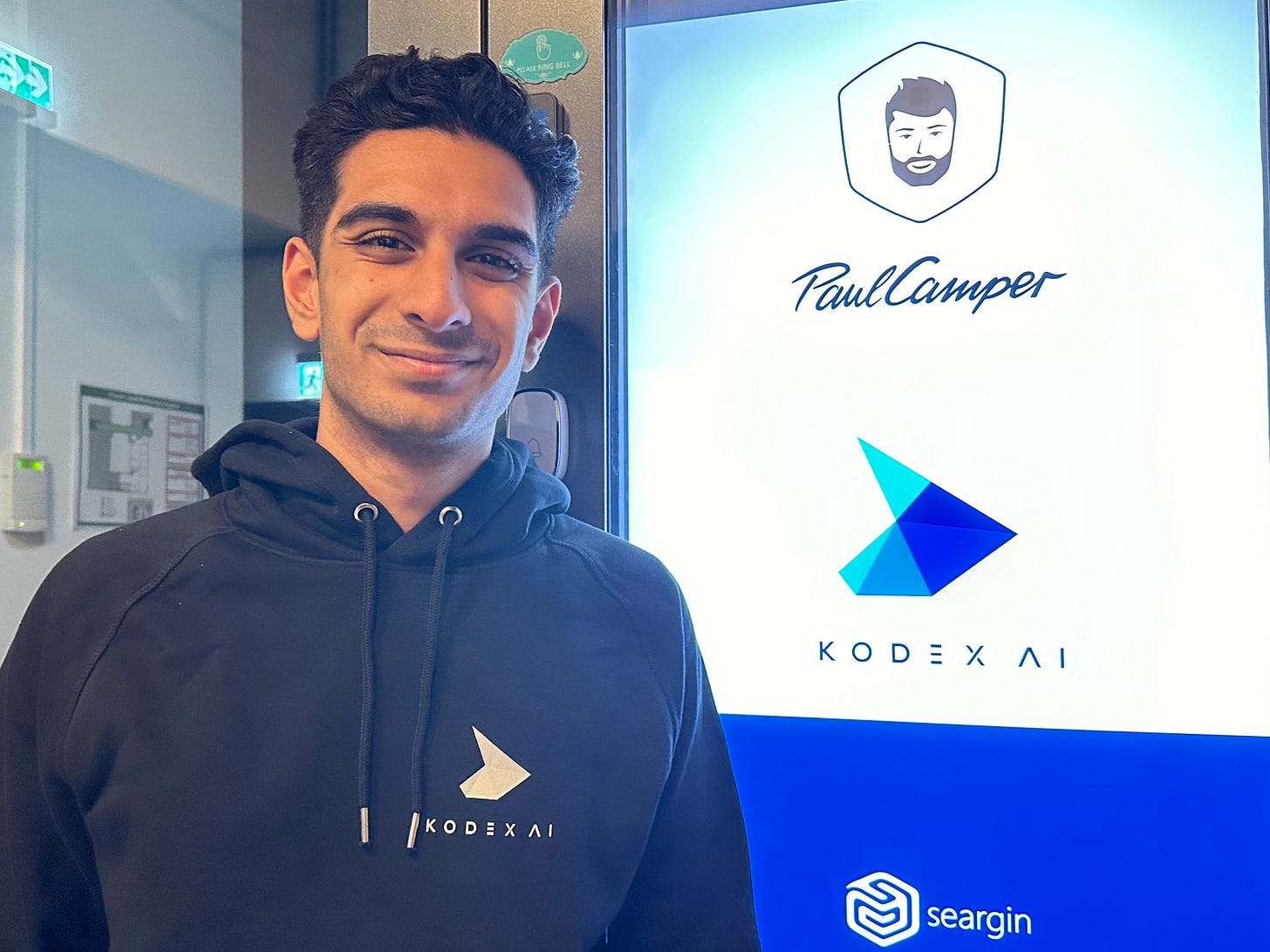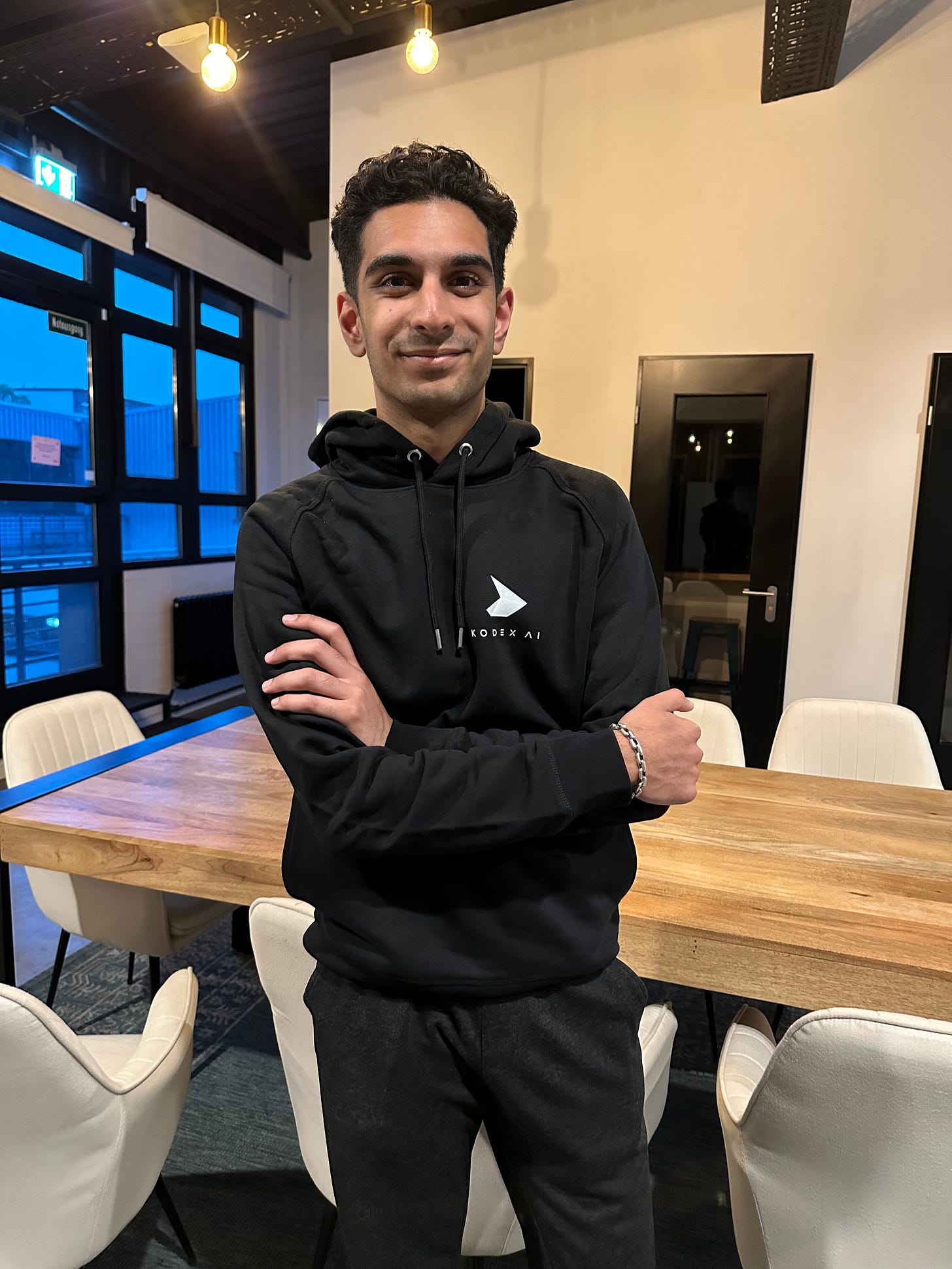- The Impact Journal
- Posts
- From Liberal Arts to AI: How A Political Science Student Found A Path in Tech & Finance
From Liberal Arts to AI: How A Political Science Student Found A Path in Tech & Finance
Rafeeq Kassam-Jiwani is a Porte Mentor studying Political Science at Bowdoin. He has worked for the Aga Khan Foundation and is now a Business Development Intern at an AI start-up.



Rafeeq is a mentor for our Porte Accelerator - a 1-year virtual program where you are paired 1-1 with someone like Rafeeq to launch your own initiative. Apply and enrol for the program here. We also offer scholarships for the Accelerator to view here.
You’re studying political science at Bowdoin, but you’re working in tech & finance. Tell us how you found your path.
For sure. In high school, I didn’t know what I wanted to do, but knew I liked the humanities. I also enjoyed small, close-knit classes where collaboration was key. Bowdoin ended up being a great fit for me because of its focus on liberal arts and intimate class sizes.
At college, I hit the ground running to explore what I liked to do. I was told I communicated well and was good at working with people, so they recommended I explore a business track. I think it’s pretty common to see business students streamline into two paths - consulting or investment banking - but I knew I wanted to discover a third path that was more innovative and meaningful.
As of now, I’m interning for a start-up which is a generative AI company for financial institutions. It’s been really exciting to explore this innovative sector.
Tell us about your experience working for the Aga Khan Foundation in high school.
For those who don’t know, the Aga Khan Foundation is a global private development network. I specifically worked for the Aga Khan Foundation Canada. I vividly remember my first day on the job. The CEO asked me:
“Rafeeq. How do you think we can help Central Asia develop economically?”
I had no clue how to respond - but from that point forwards, I committed myself to learning as much as possible about the topic.
I read articles, watched TED Talks and even took online courses to see what people were saying about the topic. Our team eventually settled on a strategy to emulate growth aspects from the Asian Tigers (the economies of Singapore, South Korea, Hong Kong, and Taiwan). These economies had used manufacturing as their primary driver for growth but we adapted our approach to fit a more modern context by focusing on the knowledge economy.
A lot of people think that inexperience harms you in work - but it gives you so much potential to grow. It’s all about being brave enough to challenge your limits.

What has been the most memorable project you’ve worked on?
It’s definitely been my current role as a business development intern at a finance AI company in Europe. Working at a start-up in “business development” really means I’m doing everything under the sun. I’ve done research and hopped on business calls, but have also presented to big banks and worked on compliance offers - high responsibility action items that larger companies would never offer to an intern.
I love my role because I get to wear so many different hats. I get first-hand experience in the rapidly developing field of ai technology and I’m excited to learn how we can develop these technologies to help us out even more.
What has been the biggest mindset change you’ve experienced?
I had this moment at a networking event when I first arrived at Bowdoin. I distinctly remember speaking to someone working in finance. When I asked him about what he liked about his work, he didn’t really have an answer for me. He said his most fulfilling moment was when he read the newspaper and saw a high profile business deal he worked on being mentioned.
While I’m still exploring the business field, I do want my work to have a greater impact. I don’t think I’d be able to commit to a typical finance job. I want to have whatever I’m working on become something that many people find useful & create change for the long term.
What advice would you give to your future mentee?
Don’t be scared. When you’re in high school and college, you’ll realize that everyone is talking themselves up to some degree and trying to “sound smart.”
You don’t have to do that with me. I want you to ask questions, even if you think they’re stupid. I’m here to help you.